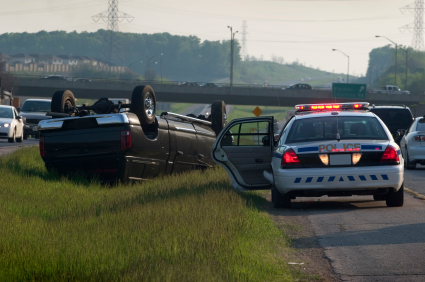The Illinois legislature has increased the penalties for traffic tickets in 2011. A new law has gone into effect that requires the Secretary of State to revoke the driver’s license of any person who is convicted of a vehicle code offense that is the proximate cause of the death of another.
Most people are aware that traffic tickets can cause a suspended license. But a revoked driver’s license is different from suspended driver’s license.
During a suspension, the driver is prohibited from operating a motor vehicle for a definite time period. At the end of the time period, the termination date, the driver is eligible for reinstatement by paying a reinstatement fee. There are no additional hurdles to reinstatement.
A revocation, however, has additional obstacles. Although a revocation has a start and end date, the driver cannot get reinstated by paying a reinstatement fee at the end of the revocation period. Rather, he must appear before the Secretary of State Department of Administrative Hearings. This is the Secretary of State’s own court system, with hearing officers presiding as judges, and prosecutors representing the Secretary of State.
A person with a revoked license must complete a formal hearing, testify under oath, and prove to the Secretary of State that he should be reinstated. The Secretary of State is not obligated to reinstate anyone, and so, if the applicant for reinstatement is denied, the revocation can theoretically continue indefinitely.
The legislature passed the new law in House Bill 4580. It became effective on January 1, 2011. It amends 625 ILCS 5/6-205 of the Vehicle Code relating to mandatory revocations. That statute now reads:
Sec. 6‑205. Mandatory revocation of license or permit; Hardship cases.
(a) Except as provided in this Section, the Secretary of State shall immediately revoke the license, permit, or driving privileges of any driver upon receiving a report of the driver’s conviction of any of the following offenses:
***
16. Any offense against any provision in the Illinois Vehicle Code, or any local ordinance, regulating the movement of traffic, when that offense was the proximate cause of the death of any person. Any person whose driving privileges have been revoked pursuant to this paragraph may seek to have the revocation terminated or to have the length of revocation reduced, by requesting an administrative hearing with the Secretary of State prior to the projected driver’s license application eligibility date.
See 625 ILCS 5/5-206(a)(16).
This law is important because almost every traffic ticket is a petty offense pursuant to 625 ILCS 5/6‑601. Generally, a violation of the vehicle code is punishable by fine only (maximum $500). It is not a criminal offense.
A person who is involved in a motor vehicle accident that results in death may be ticketed for a vehicle code violation, such as failure to reduce speed to avoid an accident (625 ILCS 5/11-601(a)), improper lane usage (625 ILCS 5/11-709(a)), or failure to yield (625 ILCS 5/11-901 or 11-904). These traffic tickets are not criminal offenses, and the maximum fine is $500.
But where the accident kills another motorist, the new law causes unforeseen consequences. If the person is convicted of any vehicle code offense, even a petty offense, then his license will be revoked for a minimum one-year period.
The new law is unnecessarily punitive. The reason is, it punishes people who were negligent, people who had no criminal intent. A fatal accident is a tragedy, but it is still an accident. The person responsible may have been at fault, but he should not be treated like a criminal.
Generally a driver who is ticketed did not exercise ordinary care. But he was probably not reckless. That is a big difference. Yet Illinois law makers believe that person should be removed from the roadway for one year because he was negligent.
I fail to see how revoking a person’s driver’s license is going to deter others from unintentional vehicle code violations.
Driving while license revoked is a Class A misdemeanor offense. The penalty can be up to one year in jail and a fine of $2,500. See 625 ILCS 5/6-303.
Anyone who is involved in a motor vehicle accident resulting in death should consult an attorney as soon as possible, because of the myriad legal and insurance problems.


